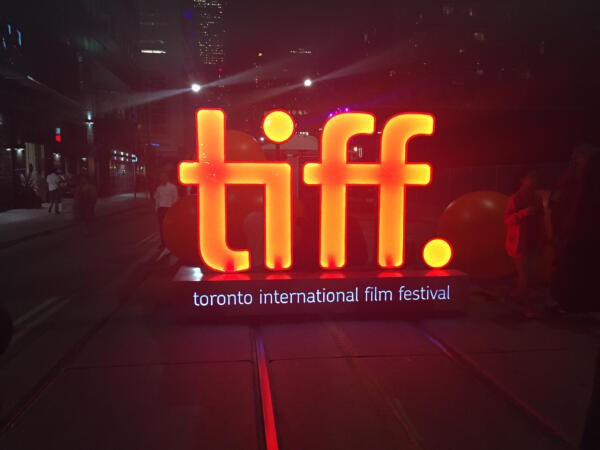
So the Toronto International Film Festival (TIFF) is taking place in a few weeks, holding from September 8th – 18th. Filmmakers from across the globe will gather to attend one of the most prestigious film festivals in the world. This year, its City to City programme shines its light on Lagos, Nigeria, and 8 films have been selected for the festival as part of the programme, but not in competition.
“The Wedding Party” (Dir Kemi Adetiba), “93 Days” (Dir Steve Gukas), “76” (Dir Izu Ojuku), “Oko Asewo” (Dir Daniel Oriahi), “Okafor’s Law, (Dir Omoni Oboli), “The Arbitration” (Dir Niyi Akinmolayan), “Just Not Married” (Dir Uduak Obong Patrick) and “Green White Green” (Dir Abba Makama).
Getting into TIFF is a fantastic opportunity for filmmakers to network with colleagues from across the globe, talk to buyers, distributors and just watch amazing and diverse films that may not get distributed to their home country. The lives of many filmmakers have changed by having films screened at prestigious film festivals; their film gets bought, they land distribution deals, or they get asked that question every filmmaker wants to hear from a potential investor: “What are you working on next?” Many careers have been launched that way. Festivals are also a place where a film can shine, just for being a great piece of work, for pure art on its own merit; and even if that particular film doesn’t get a deal, it is the place where a director or actor’s talent can catch the eye of someone that is in a position to open doors to them, that may not have happened by just having a film in the cinemas locally.
Nigerian films, for the most part, get seen theatrically in Nigeria, sometimes in Ghana and a few other countries. A Nigerian film that gets distribution at a festival like TIFF could be open to markets in North America, Europe or the Caribbean, to audiences that appreciate world cinema (aside from Nollywood cable tv). It’s an additional stream of revenue for the producers, and a connection to a wider audience who can choose to follow their work from that point.
This is my hope for those Nigerian films selected for TIFF’s 2016 City to City programme. A distributor paying $100,000 for one year of TV rights would be a huge deal. Or a network buyer paying $1M for global rights of a film; those are the kind of deals I’d love to hear about at the end of the festival. Castles in the sky? Maybe; but that’s what we live for as filmmakers; those are the dreams we had when we entered the game; reaching as far and as wide an audience as possible, while making good money.
The City to City selected films consist of an interesting variety; romance, comedy, drama, period, biopic and quirky indie. My hope is that these films have a great reception at the festival, get great reviews and that beyond this year’s City to City, there is an increased awareness of the new things happening in Nigerian film making, leading to further distribution deals in markets that local companies can’t reach, and finding new audiences for Nigerian films that previously didn’t exist. I also would love it resulting in co-productions and increased interest in investing in the Nigerian Film Industry. The programme would also give those who have only heard stories about Nollywood, an opportunity to discover it and make up their own minds.
Festival audiences are some of the toughest in the world, consisting of filmmakers, critics, distributors, exhibitors, television buyers & cinephiles, whose eyes, ears and minds are trained to scrutinize every frame, every performance, characterization and story arc. Buyers expect to see what they haven’t seen before from the thousands of hours of content they watch annually, something special that won’t get them fired. Like the Olympics, TIFF is one of the places the best of the best in filmmaking come to showcase their products, and a film would really have to be a remarkable piece of cinema to stand out.
My fingers are crossed for a really great turn out for these 8 films showcasing Nigeria’s current stage of evolution in returning to cinema.
One curious thing about the selected films is, they have some recurring names. Both “Oko Asewo” and “The Wedding Party” have Akpe Ododoru as their Cinematographer, as do “76” and “93 Days,” both shot by Yinka Edward. Somkele Iyamah stars in “The Arbitration,” as well as “The Wedding Party” and “93 Days.” Richard Mofe Damijo (RMD) stars in “The Wedding Party” and “Okafor’s Law.” Adesua Etomi, Beverly Nya and Ireti Doyle all star in” The Arbitration” and “The Wedding Party.” And Ijeoma Agu stars in “Oko Asewo” and “Just Not Married.”
Will this unconsciously and unintentionally make a statement about the breadth of the pool of talent in the industry when audiences see the same faces in more than two films? Is it the statement we want? Whatever happens, I truly hope that by the end the festival we would have cause to celebrate being in TIFF’s spotlight this year. I wish good luck to all the cast and crew of the selected films. Do us proud.
